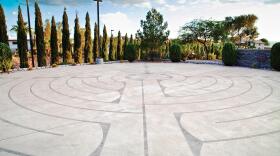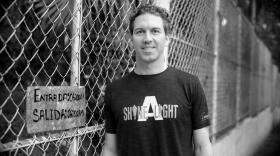A coalition of power players hopes to improve Nevada’s health care system through a collaborative center. Will doctors and hospitals buy in?
The name “Nevada Medical Center” may conjure the image of a hospital, but don't get that idea in your head. Instead, try this: Justice League meets Gates Foundation. Let it sink in. Hopefully, you’re imagining something like a bunch of superheroes raising money to improve health care throughout the state. That's the Nevada Medical Center’s much more ambitious agenda.
While the recently launched and funded Nevada Medical Center will not be a hospital, clinic or any other type of bricks-and-mortar health care facility, it will have them as members. And when those members combine strengths, they’re able to conquer gargantuan evils — in this case, a state’s woefully inadequate health care system.
The nonprofit Nevada Medical Center will work to raise money for and promote its cause of better health care for Nevadans — “will” because the project is really in its infancy. On October 2, organizers held a party to unveil their feasibility study. The outcome of that effort was coincidentally validated by the Bennett Family Foundation’s donation of $1 million to be used over four years. Soon after, the Conrad Hilton Foundation kicked in another $2 million. So, yes, with $3 million in the bank, the concept appears to be feasible.
That’s all in the abstract, however. What does the Nevada Medical Center hope to accomplish? Here’s board chair John O’Reilly, a local attorney, giving an example: “The type of research and collaboration that the Ruvo Center is doing is world-class. They have a limited scope in what they can deal with. So do our hospitals in town. Can we facilitate something for them that’s akin to virtual collaboration on a much broader scale? Technology provides the vehicle for that.”
The Affordable Care Act provides another example, says Julie Murray, whose Moonridge Group was the glue that kept the whole effort together. “When the ACA was going through, it was changing the health care landscape profoundly, but there was no one entity to disseminate that information and explain what it meant to Nevadans,” Murray says. “The medical center could do that.”
Even more tangibly, there’s advocacy, O’Reilly says — the center’s ability to provide one legal opinion on an important matter, for instance, rather than each member having to pay for its own. And medical schools. The feasibility study proposes “that investments be made in the development of two Academic Health Science Centers (one in Southern Nevada and one in Northern Nevada) where collaborative and innovative patient care and projects can be undertaken by medical schools, healthcare providers and researchers.”
This brings up the north-south politics that many in the medical community believe has held the state back. How would the Nevada Medical Center overcome that age-old problem?
“The short answer is, it’s part of our strategic process,” O’Reilly says. “But when we looked at what to name the entity, the discussion centered around that rivalry. Hence, the Nevada Medical Center. The effort is to transcend those boundaries and improve health care statewide.”
Perhaps the biggest hurdle will be buy-in. The medical center concept doesn’t work without donors and members, yet many philanthropists are loath to support the public institutions that the medical center hopes to recruit, such as UMC and the University of Nevada School of Medicine; and these organizations risk seeing the center as just another layer of bureaucracy, rather than the vehicle for collaboration and marketing that organizers intend it to be.
The firm that conducted the feasibility study surveyed more than 100 potential participants, and all of them said they supported the concept, according to the firm’s report. The next step will be hiring a CEO (expected imminently) and developing a strategic plan. So far, it’s a heroic effort that needs a few more superheroes.









